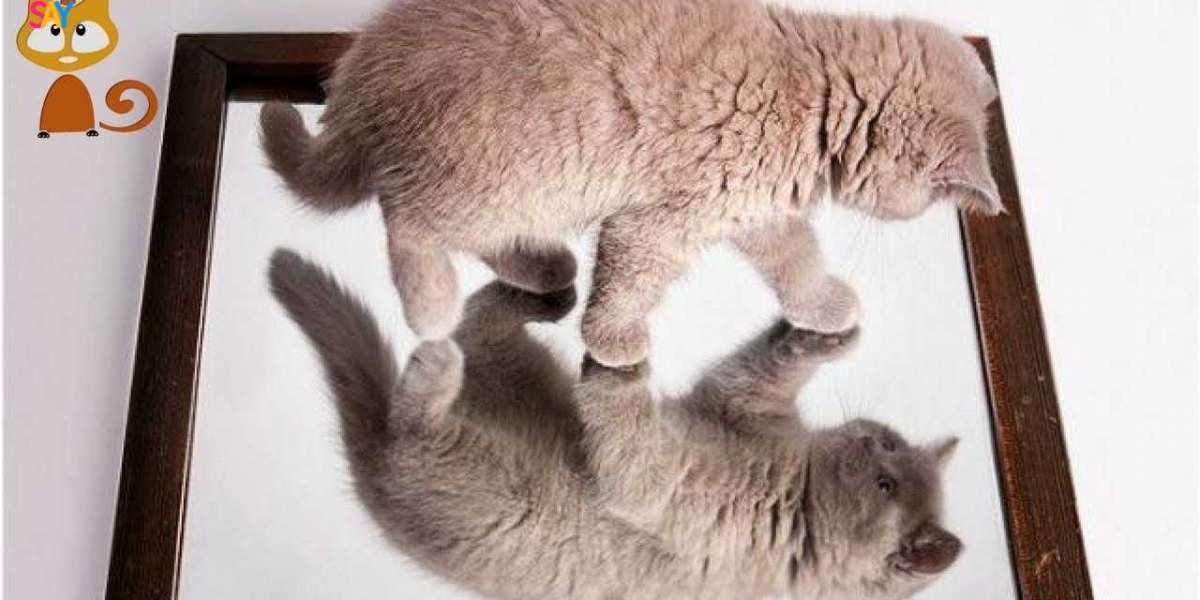Cats have a knack for getting into all sorts of peculiar behaviors, and one such mystery is the nighttime mirror scratching. If you've ever wondered why your feline friend engages in this unusual activity, you're not alone. In this blog post, we'll delve into the possible reasons behind the question, "Why does my cat scratch the mirror at night?"
Understanding Feline Behavior
Before we jump into the specifics of mirror scratching, it's essential to understand your cat's behavior in general. Cats are naturally curious creatures, and their nighttime activities often revolve around their inquisitiveness. When the lights go out, it's as if they've been given a private playground, and they can't resist exploring and playing.
The Mirror Attraction
Cats are attracted to mirrors, especially when there's low light. The flickering of distant streetlights or the soft glow of a nightlight can make the mirror a captivating object for your cat. Here are some reasons why your cat might scratch the mirror at night:
- Territorial Instincts: Cats are territorial animals, and they may perceive their reflection as an intruder in their territory. This can trigger a defensive response, leading them to scratch at the mirror to ward off the perceived threat.
- Playful Behavior: Cats often see their reflection as a playmate. The movement of their paw and the sight of another cat doing the same can be intriguing, causing them to engage with their "mirror twin."
- Hunting Instinct: Cats have a strong hunting instinct, and they might interpret the reflection as prey. Scratching the mirror can be a way for them to "catch" this elusive target.
- Stress Relief: Some cats may scratch the mirror as a stress-relief mechanism. The act of scratching can help them release pent-up energy or alleviate anxiety.
How to Deal with Mirror Scratching
If you find your cat's mirror scratching behavior bothersome, there are a few steps you can take:
- Redirect Their Attention: Offer them alternative toys or play with them to redirect their focus away from the mirror.
- Cover the Mirror: If possible, cover the mirror at night to eliminate the temptation.
- Provide Adequate Playtime: Ensure your cat gets enough playtime and mental stimulation during the day to reduce nighttime restlessness.
Conclusion
While the exact reason your cat scratches the mirror at night may vary from one feline friend to another, it's essential to understand that this behavior is a part of their natural instincts and curiosity. By redirecting their energy and providing suitable alternatives, you can help ensure a peaceful night's sleep for both you and your beloved pet.
FAQ’s:
Q1: Why Does My Cat Scratch the Mirror at Night?
A1: Cats may scratch mirrors at night for various reasons, such as territorial instincts, playfulness, or seeing their reflection as prey. It can also be a way to relieve stress. To address this behavior, you can redirect their attention, cover the mirror, or provide more playtime during the day.
Q2: How Can I Stop My Cat from Scratching Furniture?
A2: To prevent your cat from scratching furniture, provide them with suitable scratching posts or pads. You can also use deterrent sprays, keep their claws trimmed, and reward them for using the scratching posts.
Q3: Why Does My Cat Bring Me "Gifts" (like dead animals)?
A3: Cats bring "gifts" like dead animals as a natural instinct, mimicking the behavior of teaching their young to hunt. It's a sign of affection, and while it may seem unusual to us, it's a way for them to show they care.
Q4: How Do I Train My Cat to Use the Litter Box?
A4: Training a cat to use the litter box involves providing a clean and accessible box, placing it in a quiet, private area, and rewarding your cat for using it. Avoid punishing them for accidents, as this can be counterproductive.
Q5: What Causes a Cat to Purr?
A5: Cats purr for various reasons, including contentment, relaxation, or to soothe themselves when they're in pain or anxious. Purring is a way for them to communicate their emotions.
Q6: Can I Give My Cat Human Food?
A6: While some human foods are safe for cats, many can be harmful. It's best to stick to cat-specific foods to ensure their dietary needs are met. Avoid foods like chocolate, onions, garlic, and grapes, which are toxic to cats.
Q7: How Can I Help My Cat Adjust to a New Home?
A7: When introducing your cat to a new home, do it gradually. Set up a safe space with their essentials, use familiar items, and give them time to explore at their own pace. Be patient and provide plenty of attention and reassurance during the transition.
Q8: What Should I Do If My Cat is Overweight?
A8: If your cat is overweight, consult your veterinarian for a weight management plan. This may include adjusting their diet, increasing exercise, and monitoring their progress to ensure a healthy weight is maintained.




